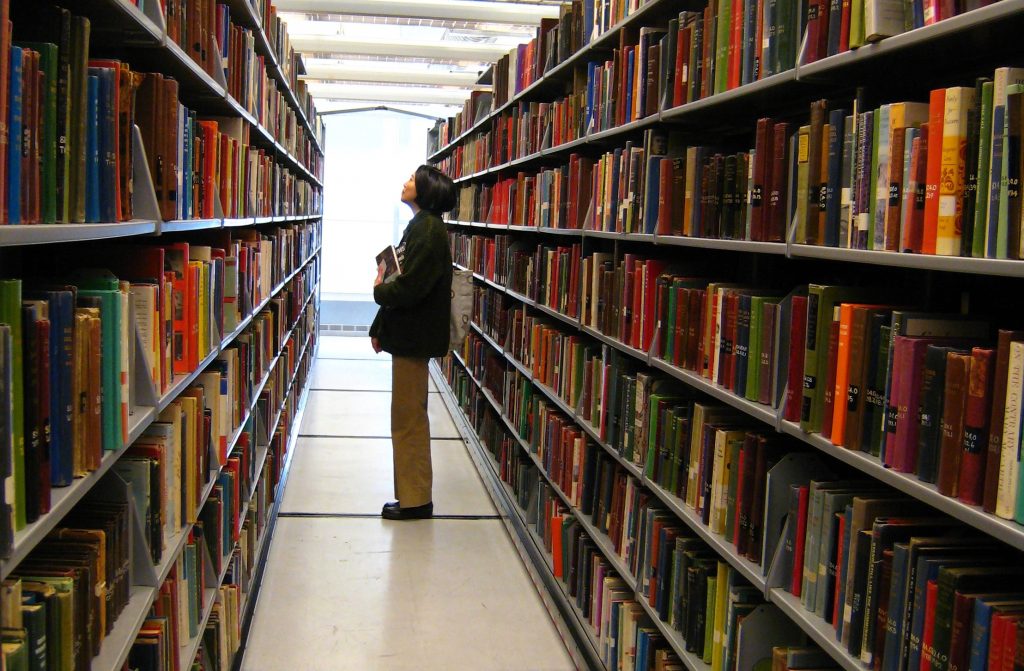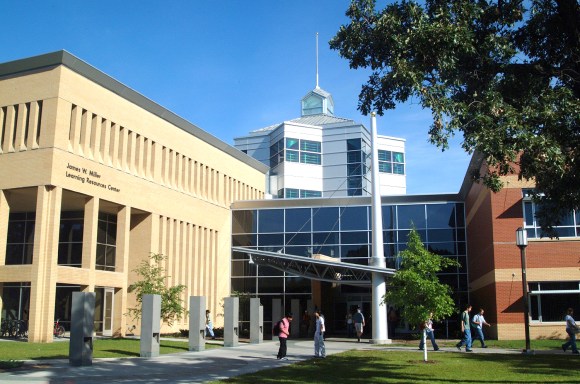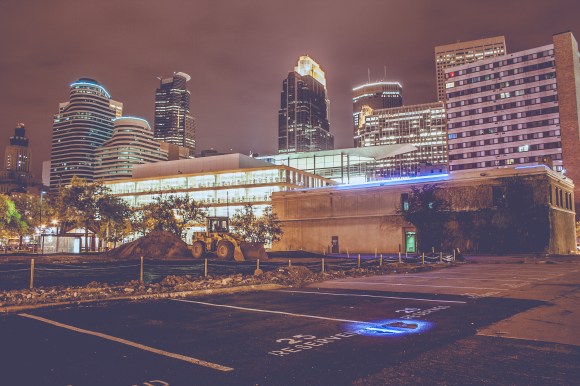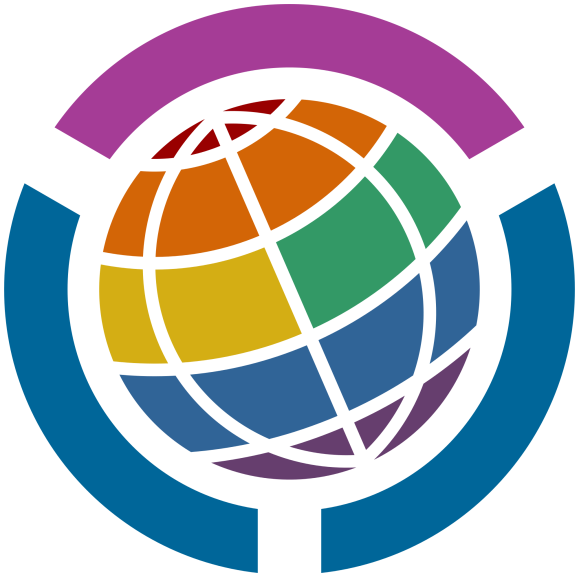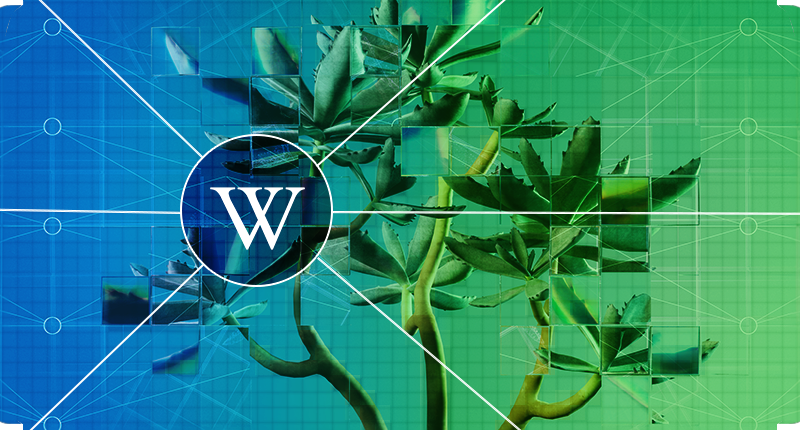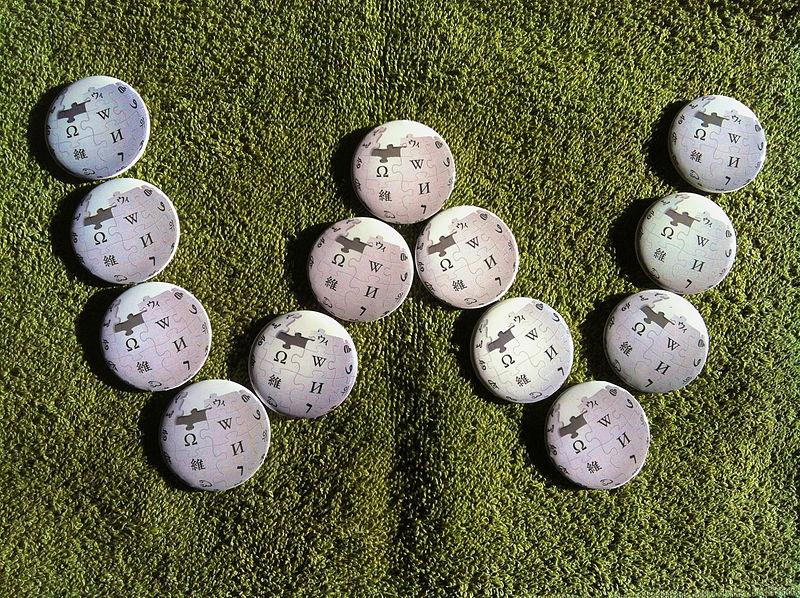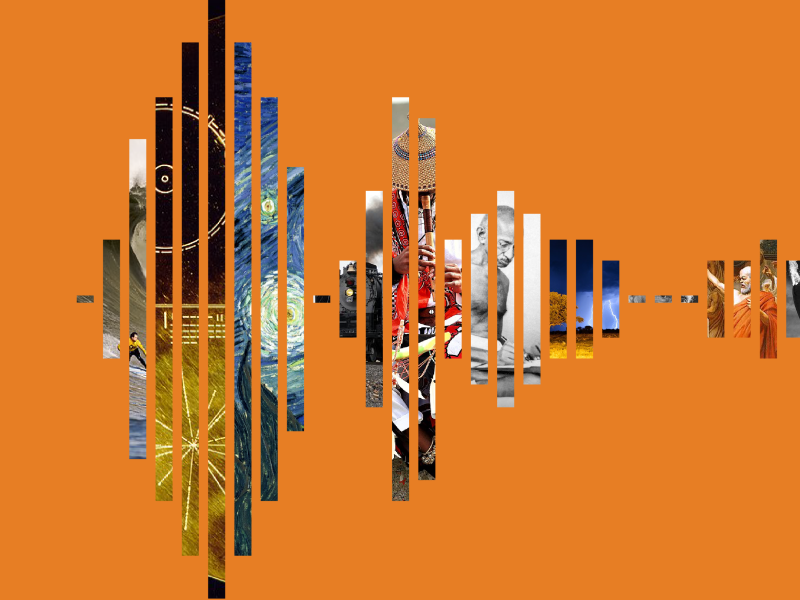As part of this year’s #1lib1ref campaign, we are examining different ways in which librarians can ally with the the Wikipedia community to represent knowledge and topics not well represented in the Wikipedia community.
These topics may be missing from Wikipedia for any number of reasons: Wikipedia’s well documented Gender Gap in both contributors and content; the complication of working with Indigenous or non-Western knowledge on Wikipedia; or that a volunteer simply hasn’t taken the time to pay attention to a locally important topic or concept.
We reached out to a librarian working on underrepresented knowledge on Wikipedia—someone who has been active in this space for a number of years on English Wikipedia. Meet Rachel Wexelbaum, Associate Professor / Collection Management Librarian at St. Cloud State University.
It’s been a while since we last sat down and talked about your involvement in the Wikimedia community: what have you been up to?
Hi Alex! Long time no see indeed! In regard to my Wikimedia work, 2017 was a busy year. These are the highlights:
First, I became the Twitter administrator for Wikimedia LGBT+’s Twitter account @wikilgbt before Wiki Loves Pride season got underway. I use @wikilgbt to promote LGBTQ+ focused edit-a-thons and Wiki Loves Pride photo shoots at Pride festivals, as well as any intersectional Wikimedia events that would include LGBTQ+ content creation. @Wikilgbt promotes those Wikipedia editors doing great LGBTQ+ work, and followers use @wikilgbt to collaborate on translation of articles, to ask for Creative Commons licensed photos or other media to enhance entries, or to share photos of their edit-a-thons. We have grown the followers to 600 in less than a year, from all over the world. Followers include Wikipedians librarians–LGBTQ+ and otherwise–and LGBTQ+ organizations in addition to Wikimedia Foundation chapters and employees. This community builds trust among LGBTQ+ Wikipedians from different countries, working across languages and cultures. Tweets fly in English, Spanish, French, German, Dutch, Polish, Serbian, Hebrew, and other languages as Wikipedians help each other.
In August 2017, I went to Wikimania 2017 in Montreal, where I met with LGBTQ+ Wikipedians from around the world. Some I had met during WikiCon USA in 2014, but most folks were new to me. I got a chance to hear their concerns, primarily in regard to safety issues and communication. Bottom line: Wikipedia cannot be a global movement that engages marginalized populations if the Wikimedia Foundation cannot provide protection for people who may create content that their home governments do not agree with, or if Wikipedians from their country wish to do them harm. I met Christel Steigenberger, from the Wikimedia Foundation Support and Safety Team, and had a long discussion with her about this. As a result, I am now a member of the Support and Safety Team’s Voices Under Threat project, where we will try to provide resources for Wikipedians who may experience harassment or worse when doing Wikipedia work on particular topics.
In the fall I served as a guide during the WebJunction course “Wikipedia+Libraries: Better Together.” I learned a lot from this course, mostly how my professional peers perceive Wikipedia and their extreme anxiety of editing and doing it wrong. I hope that I was able to help some folx get over their fear of editing and that some librarians who took that course will choose to move ahead with editing, facilitating edit-a-thons, and otherwise teach people about Wikipedia.
Last but not least, I am working on a book chapter based on my experience as an LGBTQ+ WIkipedian librarian and my research on library participation in global LGBTQ+ Wikipedia efforts, for an upcoming book about 21st century LGBTQ+ librarianship edited by Bharat Mehra. It is an honor to have my chapter included in his book; he has written some powerful articles on social justice-oriented librarianship and how libraries should do more to support and empower the marginalized.
———
Do you think you could describe how you got involved with Wikipedia and how it fits into your career as a librarian?
At first, I used Wikipedia as quite a few librarians do–as a research resource and a tool for information literacy/digital literacy instruction. I would have my students compare a traditional encyclopedia entry on their research topic to a Wikipedia article on the same topic, and they would have to compare and evaluate both resources. Hands down, the Wikipedia article was always more comprehensive, more current, less biased, and included honest citations. The whole idea that people could improve and expand upon Wikipedia entries really appealed to me, because nothing is static in this world. Traditional encyclopedias only provide a snapshot in time, and some would serve as excellent historical documents.
I learned how to edit Wikipedia during edit-a-thons and through work on my own. I did not take a class–there were no Wikipedia classes at the time–so I learned a great deal by trial and error. I am still learning. During my first Art+Feminism edit-a-thon, I created an article all by myself about Yolanda Retter, who was a Chicana lesbian librarian, archivist, and historian in southern California and one of my heroes. I couldn’t believe that she wasn’t in there before I got the article started. I realized that this was the case for quite a few prominent librarians and academics at the time, especially if they were LGBTQ+ or LGBTQ+ people of color. It is getting better now, but we still have a long way to go, especially when we do cross-cultural work, creating entries in English Wikipedia about subjects that may not be well known in the English speaking world, but are still notable because they were a first, or because of their accomplishments. I also like to update entries about my favorite authors and musicians, and provide links to their work if possible. It still is the case that, for research on marginalized populations, the Wikipedia article may still be the best—or only—resource available.
When I do library instruction now I teach students how to evaluate Wikipedia articles, and show them the WikiProject quality scale rubrics. Their professors are often present during the sessions as well, and they are completely gobsmacked because they had no idea about what was happening behind the scenes. I inspire some of them to teach Wikipedia to their students, or to dip their toe into editing. I would not have learned anything about Wikipedia if I did not learn how to edit, and if I was not invited by Lane Rasberry to Wikiconference USA in 2014. That was where I met people behind the work, participated in discussions about the work, and got connected to the larger community, and really became a believer in open access. I work at a university library that currently has no money for books and media, and we have had to slash our journal and database subscriptions. So I work with my library colleagues on locating, evaluating, and promoting open access resources to our students and faculty–and Wikipedia is one of those resources.
What I love most about Wikipedia is getting people together to share expertise, collaborate, and network. I have hosted edit-a-thons at my university since 2014, and have presented at state library conferences about this work, which inspired other librarians in my state to edit and/or facilitate edit-a-thons. We now have a little community of Wikipedian librarians even though our institutions are spread out, and we participate in each others’ edit-a-thons and help facilitate and support newbies. I am also invited to facilitate edit-a-thons at other institutions and to teach Wikipedia editing to other peoples’ students; I did this at St. Catherine’s University, which is home to the only library school program in Minnesota. I asked the professor if we could invite library school faculty and students to my presentation, and to open up the edit-a-thon to them, and she said absolutely…so some folx from the library school participated. While we do not get the large turnouts for edit-a-thons that big cities might, we have a high percentage of return editors, which means that we are doing something right and making people feel safe, welcome, and valued doing Wikipedia editing. I am most proud of this, more than any single article I have created.
I think that those who write perfect articles all by themselves completely miss the point of Wikipedia. The whole object of Wikipedia, to me, is collaboration on articles and building the community to keep the resource alive and expanding. Unless human civilization destroys itself, we will never run out of information that needs to be defined, explained, updated, organized, and made accessible. Among other things, Wikipedian librarians can provide major support with Wikidata, linking citations to WorldCat holdings and open access journals, and improving the whole categorization system on Wikipedia.
As I understand it, for you, contributing to the Wikimedia community is about more than just covering topics that you have hobbies in, but also in representing knowledge and people not well represented elsewhere on the internet. What do you work on? Why do you do that?
Most of my Wikipedia work is focused on LGBTQ+ individuals and topics, and the intersections between LGBTQ+ identity and other identities. I will also “queer” articles that should address LGBTQ+ issues. For example, I added the content about LGBTQ+ discrimination that took place during St Patrick’s Day parades in the United States for a very long time to the St Patrick’s Day article. I like to “queer” articles and expand LGBTQ+ content because LGBTQ+ people and issues are real and shape our human civilization.
Quite often Wikipedia articles can be the jumping off point for further research if they provide relevant external links and good citations. For cisgender straight researchers–or those researchers looking for basic information on seemingly non-controversial things, like countries, “queered” Wikipedia articles will show these researchers that we can’t give an inventory of information about a country without including information about LGBTQ+ rights in that country, for example. That information may end up mattering to someone, even if they were not intentionally searching for it. People look up all kinds of sexual information on Wikipedia as well, because they want to find out if they are normal or sick, or how to do things. LGBTQ+ information has to be included in those entries as well, because there are fewer places for people to go to look for that information whether in online or face to face settings. This is especially the case for people living in countries where LGBTQ+ expression, visibility, and published information are all illegal.
———
And why do you think librarians are particularly good at supporting the representation of these kinds of knowledge?
Librarians develop authoritative and diverse collections that represent and support the marginalized, and can inform Wikipedians about those resources and have them cite those resources in their articles. For the most part, this collaboration still is not taking place at Wikipedia edit-a-thons because librarians remain a tiny percentage of active Wikipedians, libraries are seen as hosting facilities for edit-a-thons and not always information resources, and editors will always use the most convenient, accessible resources as opposed to “the best”. LGBTQ+ information, particularly historical information, still exists primarily in books. At Wiki Loves Pride edit-a-thons the serious editors actually bring their own reference books! At Art+Feminism events the organizers will already have a cart or two of books, or a display of books, in the edit-a-thon space for editors to use.
We have an opportunity for more LGBTQ+ cultural heritage institutions to participate in Wiki Loves Pride initiatives. There are a lot of reasons why they aren’t–lack of space or training, lack of technology, or restrictions on what they can actually share from their collections. At the same time, they could collaborate with other libraries, share their expertise, and provide resources that editors can link to in their articles so that researchers know that further information is available at particular LGBTQ+ institutions. Our Wiki Loves Pride edit-a-thons in the Minneapolis Central Library are very special because the librarians and volunteers from Quatrefoil (the LGBTQ+ community library in Minneapolis) will come and participate, and they have quite a lot of knowledge to share.
Working with LGBT topics can be challenging; often the LGBTQ+ community wants to add content about notable local LGBTQ+ people, or notable LGBTQ+ people who never got the recognition they deserved when they were alive, and so we have challenges with the word “notability” as Wikipedia currently defines it. Some of the most important people in the LGBTQ+ community are written about in blog posts, popular magazines, YouTube videos, and social media posts–all of which are discouraged by the article reviewers. But this may be the only trail of information that we have about a person, or a particular cultural phenomenon. I have found even more complicated challenges with the representation of indigenous people and their histories, as well as cultures that did not have a written language until very recently. In North America, AfroCROWD is doing some great work in this area, as well as French Canadian Wikipedian Benoit Rochon and others who are giving indigenous populations the tools to develop their own language Wikipedias using the information resources that they have.
———
You participated in supporting the Webjunction class that we highlighted during a blog post in December, as an advisor and supporter of new contributors as part of the campaign. What were the biggest challenges you noticed among other librarians participating in Wikipedia?
First off, I want to make very clear that the majority of librarians taking the WebJunction class were not active Wikipedians. Most wanted to get a general overview of Wikipedia and learn how to edit. I am not sure how many of the librarians after this class will become active Wikipedia contributors or facilitate edit-a-thons, because most could not get over their fear of messing up someone else’s work or doing something wrong.
It took them a much longer time than anticipated to make their first edits; some of that was due to “Wikipedia anxiety”, but some of it was also due to insufficient technical skills. Most of these librarians, for the most part, saw Wikipedia as a reference resource. They did not see it as a community. And that is a huge barrier to their success and participation in Wikipedia efforts.
———
What can we learn from working with a group of librarians that large?
I think the class would have helped librarians become more successful in learning about Wikipedia if the large group was separated by interest (Wikipedia for information literacy vs Wikipedia editing/edit-a-thons) and content expertise. Librarians need to work and learn in environments where they can practice what they know while learning something new.
———
Why should librarians get involved in campaigns or activities like the #1lib1ref campaign?
If librarians gain a better understanding about Wikipedia through a small hands on activity, and if they find out that their edit made a difference somehow, Wikipedia will have more buy in from librarians. I think that #1lib1ref should take place all year round, so when librarians specifically make edits or create new content, they can promote what they have done, to show their engagement, to show the breadth of work that they are doing, and to connect with other Wikipedian librarians through social media. They really need to see other librarians doing Wikipedia work to believe that they can, too.
Interview by Alex Stinson, Strategist, Community Programs
Wikimedia Foundation
